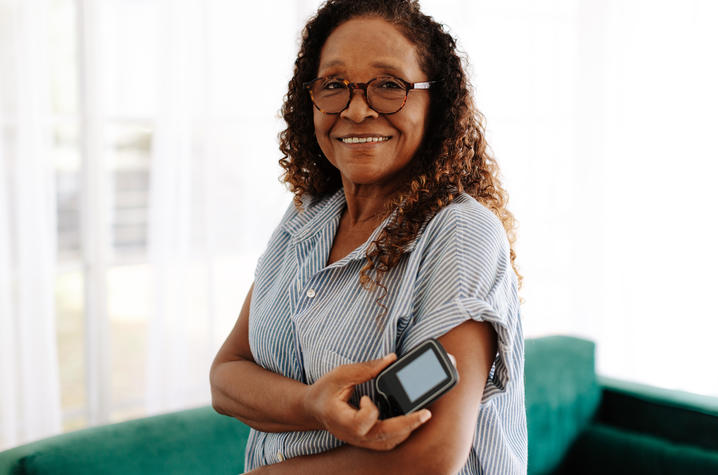10 tips for traveling with diabetes

The University of Kentucky Public Relations and Strategic Communications Office provides a weekly health column available for use and reprint by news media. This week's column is by Tami Ross, a nationally recognized registered dietitian and certified diabetes care and education specialist. She serves as a diabetes education services coordinator with the Barnstable Brown Diabetes Center.
LEXINGTON, Ky. (July 31, 2023) — Diabetes requires regular self-management and treatment, even on vacation. That’s why it is important to plan ahead to ensure that your next great adventure does not suspend your diabetes management.
Check in with your diabetes care provider
When in doubt, schedule an appointment with your diabetes care provider to discuss how your diabetes management may change while you are traveling. Your provider can let you know if your travels require any immunizations.
Ask your doctor for a letter detailing your diagnosis, how your diabetes is treated and what medication and equipment is required.
Notify the TSA agents about your medical devices
When flying, it is important to let TSA agents know beforehand that you have medical devices in your bag or on your person. This will help prevent any unnecessary hiccups, keep any diabetes devices safe, and speed you through security. It may be beneficial to bring a letter from your doctor stating your diagnosis and what supplies you are traveling with.
Take a TSA medical condition notification card
You may want to bring a TSA notification card to discreetly notify the agents of your diabetes. These cards should be printed and filled out ahead of time. This may be helpful if you have a child who is self-conscious about their diagnosis and does not want the extra attention that comes with notifying the agents.
Request a pat-down screening process
You can request a pat-down screening as an alternative to the airport full-body scanner. Some diabetes devices may be damaged by X-ray baggage machines or full-body scanners, so make sure to follow the device manufacturer’s recommendations.
Know that the 3.4 oz. rule doesn’t apply
Insulin and other liquid medications like glucagon are permitted through airport security even if they are greater than 3.4 ounces. You may travel with a juice box over 3.4 ounces to treat any potential low blood glucose, but it will receive additional screening. Lancets and syringes are also allowed through security but should be accompanied by insulin.
Keep medicines with you
Do not store insulin or other diabetes injectables in checked luggage or the trunk of the car. It could be affected by pressure and temperature changes. Keep any medication or blood testing supplies that you might need with you.
Make sure to have a pharmaceutical label for all your medication to show that it was prescribed by a physician when going through airport security. Try to pack twice as much medicine and diabetes supplies as you think you’ll need to be prepared for any travel delays or unforeseen circumstances.
Take frequent breaks
Since people with diabetes are at a higher risk of developing blood clots, which can lead to heart attack or stroke, try to take frequent breaks to stand up and walk around to help keep blood flowing.
Protect supplies from the sun
Make sure to keep your diabetes supplies out of the sun, and do not leave them in a hot or cold car. If you take insulin, keep it in a cooler, but avoid placing insulin directly on ice as it may get too cold or freeze, damaging it.
Bring healthy snacks
Travel with portable, ready-to-eat snacks in case of meal delays or food unavailability.
Dress comfortably
Wear comfortable clothing and supportive well-fitting shoes with plenty of cushioning. Make sure to never walk bare foot, even on the beach. While traveling, check your feet for swelling and blisters regularly.
UK HealthCare is the hospitals and clinics of the University of Kentucky. But it is so much more. It is more than 10,000 dedicated health care professionals committed to providing advanced subspecialty care for the most critically injured and ill patients from the Commonwealth and beyond. It also is the home of the state’s only National Cancer Institute (NCI)-designated Comprehensive Cancer Center, a Level IV Neonatal Intensive Care Unit that cares for the tiniest and sickest newborns and the region’s only Level 1 trauma center.
As an academic research institution, we are continuously pursuing the next generation of cures, treatments, protocols and policies. Our discoveries have the potential to change what’s medically possible within our lifetimes. Our educators and thought leaders are transforming the health care landscape as our six health professions colleges teach the next generation of doctors, nurses, pharmacists and other health care professionals, spreading the highest standards of care. UK HealthCare is the power of advanced medicine committed to creating a healthier Kentucky, now and for generations to come.




